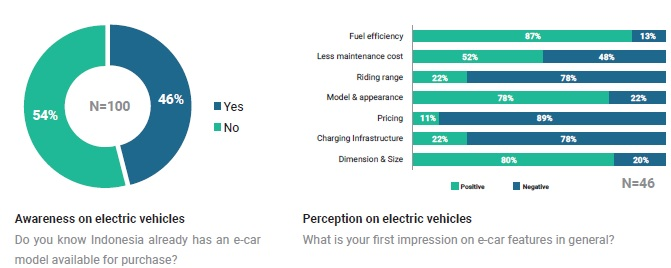Electric Vehicle Initiatives in Indonesia Continue to be Supported by Digital Businesses
The latest is NFC and SiCepat for joint ventures to build distribution infrastructure and services for Volta electric motor products
NFC Indonesia with SiFast formed a joint venture company PT Energi Always Baru (ESB) which will focus on distribution of electric motorcycles, battery exchange, and other supporting services. As a first step, ESB will acquire a minority stake in PT Volta Indonesia Semesta (Volta), a manufacturing company that produces various electric bicycles and motorcycles in Indonesia.
Supported by other M Cash subsidiaries, such as DMMX and Telefast, ESB will seek to increase the absorption and distribution of the use of electric vehicles with a technological approach. Explaining this, NFC President Director Abraham Theofilus said, "Through our digital platform that allows users to manage their electric vehicles and related battery usage, we are trying to clear up doubts related to EV (Electric Vehicle) adoption, especially regarding the distance traveled and frequency of use. "
He continued, "In the process, NFCX will also gradually introduce a loyalty mechanism in the digital platform that will provide reward to our electric motorcycle users."
Volta will be the main production house of electric motorcycles for ESB with NFCX providing and managing a digital platform for vehicle registration and management, payments and reward. ESB will leverage the logistics capabilities and networks of SiCepat and Telefast to plan and deploy battery exchange stations. The expansion of the battery exchange network will also use the extensive DMMX retail store network throughout Indonesia.
Missions with electric vehicles
The initiative to use electric vehicles was also conveyed by decacorn Gojek. In an opportunity at the launch of the company's sustainability report, one of the company's executives said that they plan to make every vehicle unit on its platform an electric vehicle by 2030. Realization by cooperating with manufacturers and arrangements lease that benefits partners.
Another player, that is Grab, also began to aggressively launch electric vehicle initiatives. They started doing pilot project in early 2020 in Jabodetabek utilizing car units from Hyundai and the Gesits electric motor. PLN is also cooperating for joint planning, research, business model development, and pilot implementation.
On the upstream side, developers of electric vehicle units are also getting investors' attention. Just say it ION Mobility, the Singapore, Shenzhen (China) and Jakarta-based company recently raised $3,3 million in seed funding from Monk's Hill Ventures, TNB Aura, Village Global, 500 Startups (through the 500 Durians fund), AngelCentral, kipleX, and Seeds. Capital.
Basically ION Mobility is a smart electric motor development company. Smart here because they've embedded artificial intelligence software for multiple tasks, such as power saving and ease of use.
Implementation challenges
On the government side, the Ministry of Energy and Mineral Resources has a special concentration in supporting the electric vehicle acceleration program. According to the data revealed last April 2021Currently, there are 122 units of Public Electric Vehicle Charging Stations (SPKLU) which have been built and spread over 83 locations. Referring to the road map that has been prepared, the government targets by 2025 to build 3.860 SPKLUs and 17.000 Fire Hazard Rating Systems (SPBK).
On the infrastructure side, if you look at the current conditions and the goals to be achieved, there is still quite a lot of homework. However, the presence of a support system such as charging services needs to be well distributed to be the first step in inviting people to make the transition to electric vehicles.
On the other hand, there are still challenges that currently need to be considered together. The first is the selling price of electric vehicles, which still tend to be high and the options are not too many. The government, through the Ministry of Industry, also requires foreign electric vehicle manufacturers who want to market their products here must contain a Domestic Component Level (TKDN) until 2023 of 35 percent.
Second, the low penetration of electric vehicles indirectly also makes people wonder about their effectiveness in use in Indonesia. How about battery reliability and mileage that can be accommodated, considering the two main challenges here are traffic and contoured geography.
More Coverage:

The presence of digital players in driving the penetration of electric vehicles is important. Apart from increasing awareness, the power they possess can directly play a role in growing their own ecosystem. For example what NFC and SiFast do by entering the line supply chain leaders, or Grab and Gojek which seeks to present the best mechanism to facilitate its partners with environmentally friendly vehicles.
Because apart from the business aspect, electric vehicles are considered capable of providing a more secure future for the environment – with cleaner air quality and renewable energy resources that are more environmentally friendly.
Sign up for our
newsletter
